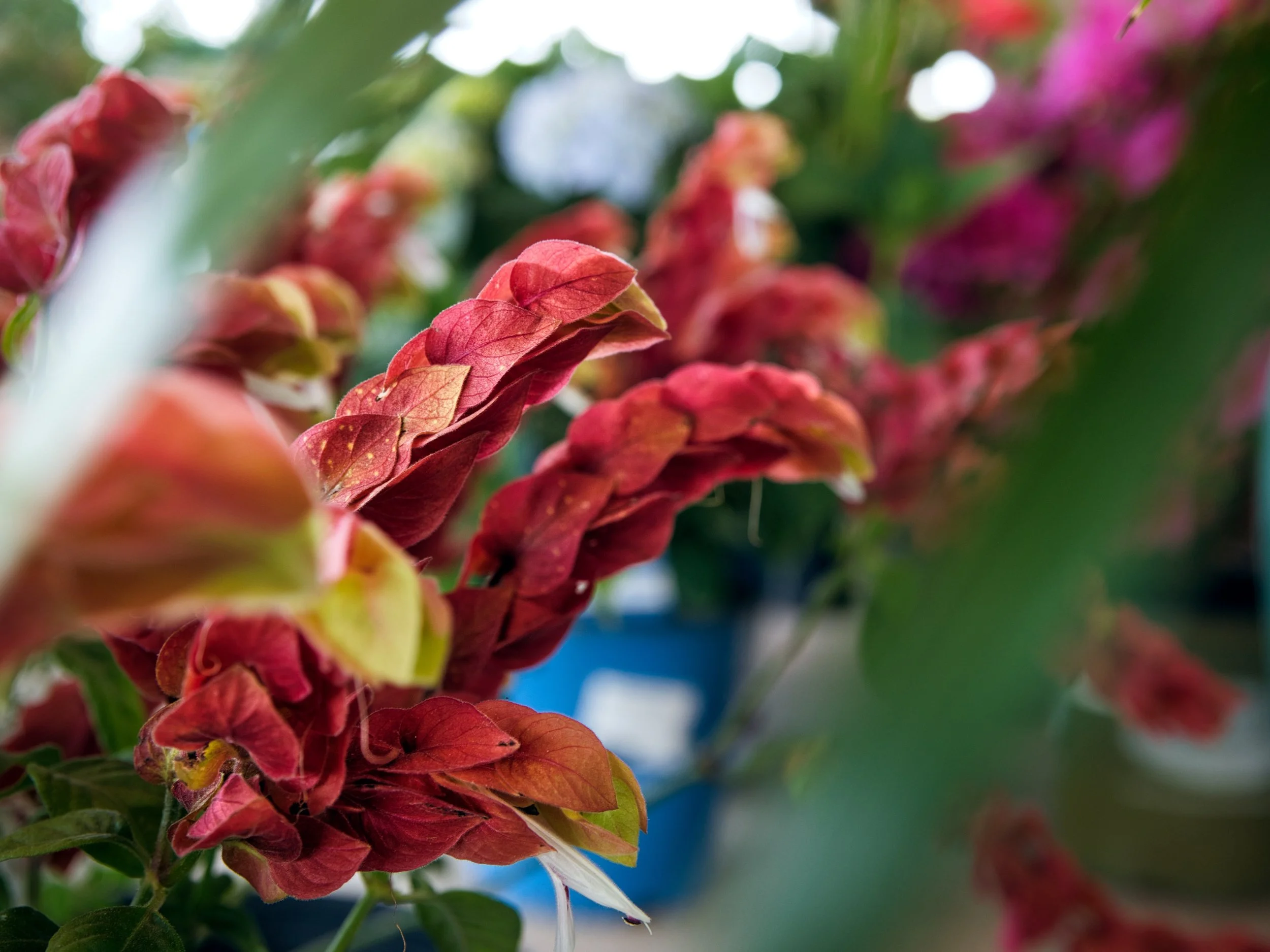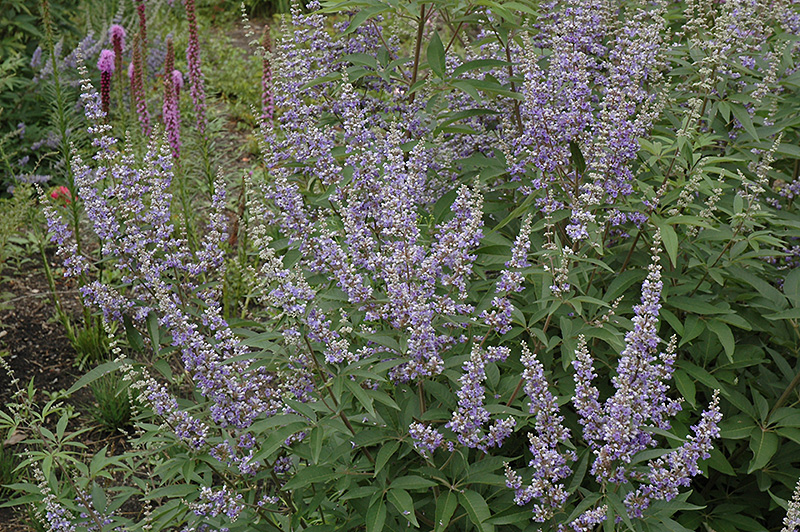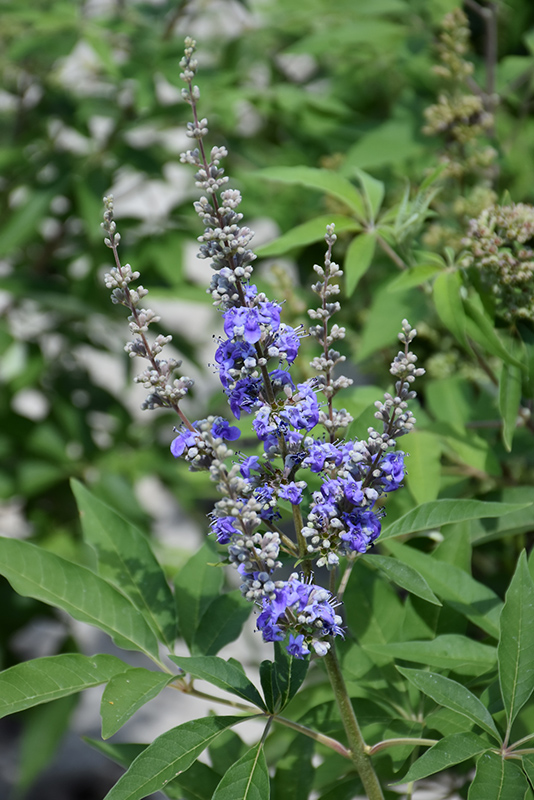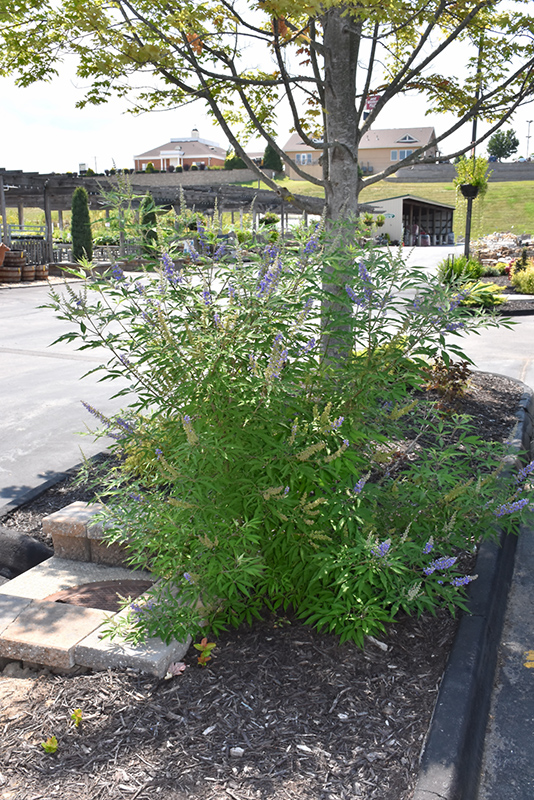Height: 10 feet
Spread: 8 feet
Sunlight:
![]()
![]()
Hardiness Zone: 5b
Description:
An unusual shrub with airy spikes of lilac-purple flowers throughout the summer, distinctively palmate-leaves; can be treated like a perennial and cut back each spring, as it flowers on new wood and regrows vigorously; best pruning is late winter
Ornamental Features
Chaste Tree has panicles of lightly-scented lilac purple flowers rising above the foliage from early summer to early fall. It has green deciduous foliage. The fragrant palmate leaves do not develop any appreciable fall color.
Landscape Attributes
Chaste Tree is an open multi-stemmed deciduous shrub with an upright spreading habit of growth. Its relatively fine texture sets it apart from other landscape plants with less refined foliage.
This shrub will require occasional maintenance and upkeep, and is best pruned in late winter once the threat of extreme cold has passed. It has no significant negative characteristics.
Chaste Tree is recommended for the following landscape applications;
- Hedges/Screening
- General Garden Use
Planting & Growing
Chaste Tree will grow to be about 10 feet tall at maturity, with a spread of 8 feet. It tends to be a little leggy, with a typical clearance of 2 feet from the ground, and is suitable for planting under power lines. It grows at a fast rate, and under ideal conditions can be expected to live for 50 years or more.
This shrub does best in full sun to partial shade. It is very adaptable to both dry and moist locations, and should do just fine under average home landscape conditions. It is considered to be drought-tolerant, and thus makes an ideal choice for xeriscaping or the moisture-conserving landscape. It is not particular as to soil type or pH, and is able to handle environmental salt. It is highly tolerant of urban pollution and will even thrive in inner city environments, and will benefit from being planted in a relatively sheltered location. This species is not originally from North America.




